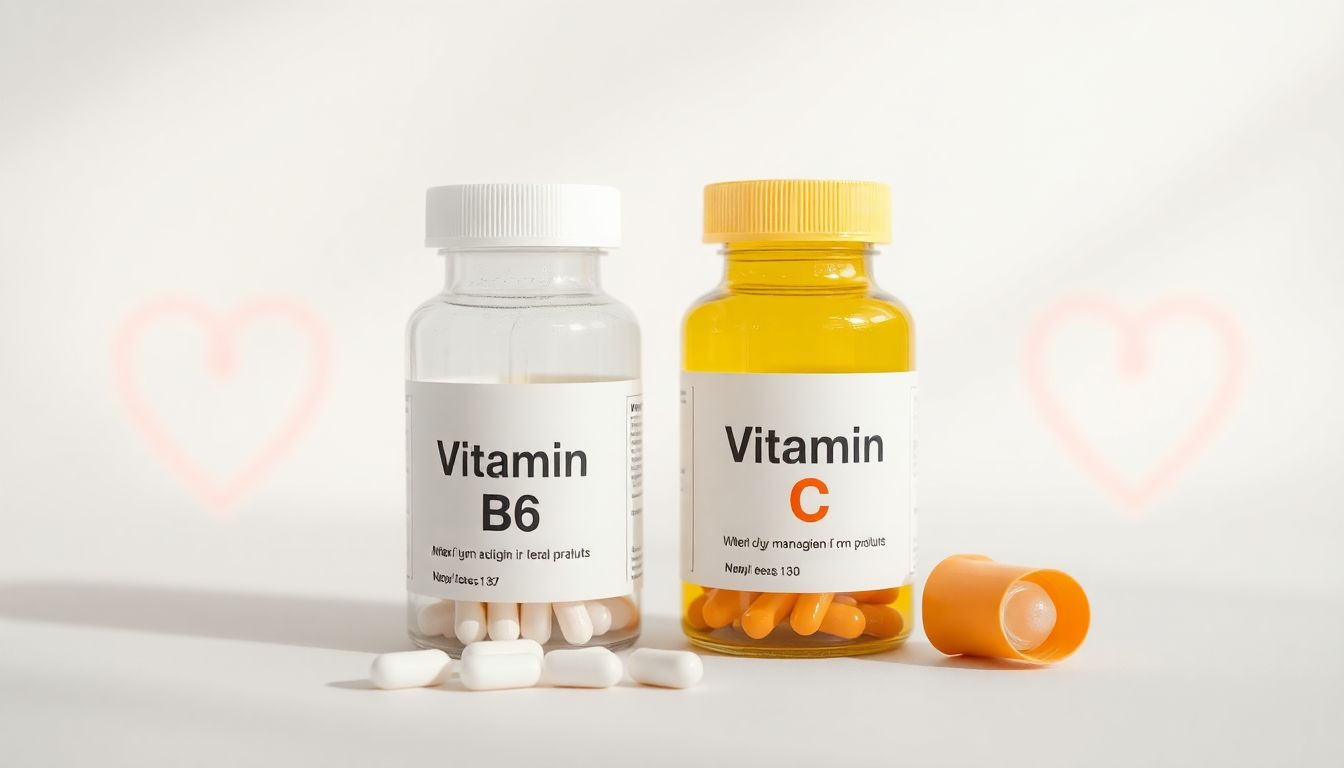
Ever feel like your health is a puzzle? High cholesterol and blood pressure can make things even more complex. But what if there were simple solutions that could help? Imagine using vitamins as a natural boost to manage these conditions.
Certain vitamins, when combined, might offer a powerful way to keep your cholesterol and blood pressure in check. Let's see how this works.
Understanding High Cholesterol and Blood Pressure
Let's cover the basics. Knowing about high cholesterol and blood pressure is key to taking care of your heart.
What is High Cholesterol?
Cholesterol is a type of fat in your blood. You have LDL (bad) cholesterol, HDL (good) cholesterol, and triglycerides. High LDL and triglycerides can lead to clogged arteries.
High cholesterol often stems from diet choices. Genetics and lifestyle also matter. Unhealthy eating habits, lack of exercise, and family history can all raise your cholesterol levels.
What is High Blood Pressure?
Blood pressure is the force of your blood against your artery walls. It's measured with two numbers: systolic and diastolic. Systolic is the pressure when your heart beats. Diastolic is when your heart rests. Hypertension, or high blood pressure, is when these numbers are too high.
Uncontrolled high blood pressure can cause real issues. Heart disease, stroke, and kidney problems are just some of the risks. Maintaining healthy blood pressure is essential for long-term health.
The Power of Vitamin D
Vitamin D does more than just build strong bones. It also plays a role in keeping your heart healthy.
Vitamin D and Cholesterol
Vitamin D may influence cholesterol levels in several ways. It could help regulate the production of cholesterol in your body. Some studies suggest a link between Vitamin D deficiency and unhealthy cholesterol levels (dyslipidemia).
If you are low on Vitamin D it may impact your lipid profile. Getting enough Vitamin D could support balanced cholesterol.
Vitamin D and Blood Pressure
Vitamin D can affect your blood pressure. It interacts with a system called the renin-angiotensin-aldosterone system (RAAS). This system helps regulate blood pressure.
Some studies have found that Vitamin D supplements may reduce blood pressure. Maintaining healthy Vitamin D levels might support healthy blood pressure.
The Cardiovascular Benefits of Vitamin K2
Vitamin K2 is important for your heart. This vitamin helps prevent calcium buildup in your arteries, which is important for cardiovascular health.
Vitamin K2 and Arterial Health
Vitamin K2 activates proteins that prevent calcium from depositing in your arteries. When calcium builds up, arteries can stiffen. Keeping calcium out of your arteries is crucial for artery health.
There's Vitamin K1 and Vitamin K2. Vitamin K1 mostly helps with blood clotting. Vitamin K2 has a greater impact on bone and heart health.
Vitamin K2 and Blood Pressure
Arterial stiffness can lead to high blood pressure. When your arteries are flexible, blood flows more easily.
Vitamin K2 may help maintain arterial flexibility. This can help lower blood pressure and support overall cardiovascular health.
Synergistic Effects: Combining Vitamin D and K2
When you take Vitamin D and K2 together, they work even better. The combination can improve results and help you stay healthy.
How Vitamin D and K2 Work Together
Vitamin D helps your body absorb calcium. But it's Vitamin K2 that directs the calcium to the right places, like your bones. It prevents calcium from settling in your arteries, where it can cause problems.
This combo is great for your bones and heart. Vitamin D makes sure you absorb calcium, and Vitamin K2 ensures it goes where it's needed.
Dosage and Safety Considerations
How much Vitamin D and K2 should you take? For Vitamin D, adults often need around 600-800 IU per day. Vitamin K2 dosages typically range from 90-120 mcg daily.
Always talk to your doctor before starting any new supplement. They can advise you on the right dosage for you. Also, some supplements can interact with medications. Getting medical advice is smart.
Lifestyle Modifications for Optimal Results
Vitamins are a great tool. However, it's better to see them as part of a bigger health plan.
Diet and Exercise
Eat a heart-healthy diet to stay well. Make sure you get regular physical activity. Limit saturated and trans fats, cholesterol, and sodium. These changes will support your heart.
Stress Management
High stress can impact blood pressure and cholesterol. Find healthy ways to manage stress. Try meditation, yoga, or spending time outdoors. These activities can lower stress levels.
Conclusion
Combining Vitamin D and K2 could help manage high cholesterol and blood pressure. Remember, these vitamins work best when you also make healthy lifestyle choices. This includes diet, exercise, and stress management. Don't start any new supplement without chatting with a doctor. They can help you decide if Vitamin D and K2 are right for your health needs.
%20(4).jpeg)